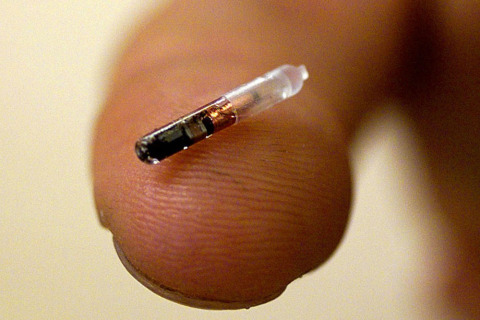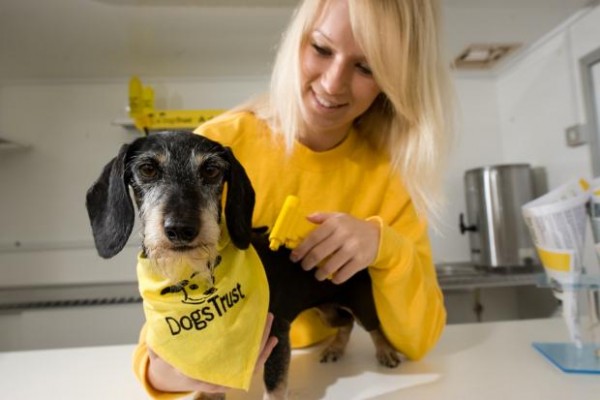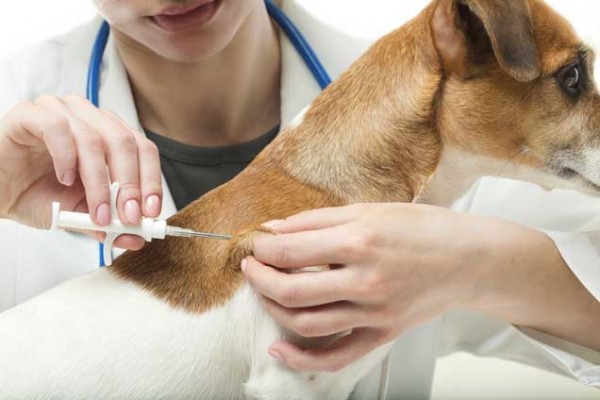With an average of 118,932 stray dogs in the UK in 2015, the Government has finally decided to introduce a new law whereby every dog must be microchipped by 6th April 2016.
Of these strays, only 47% of dogs were reunited with their owner.
The new law’s intention is to reduce the number of stray dogs by reuniting lost and stolen pups with their owner.
Owen Paterson, Environment Secretary comments:
”Microchipping is a simple solution that gives peace of mind to owners. It makes it easier to get their pet back if it strays and easier to trace if it’s stolen.”
What is Microchipping?
Microchips are small devices (the size of a grain of rice) inserted by a sterile needle between a dog’s shoulder blades.
Once in, the microchip fuses to the dog’s bodily tissue over time, so it’s less likely to move around.
The microchip exterior is made from biocompatible glass – the same material used in human pacemakers.

A vet holds a micro-chip identity tag which will be inserted under the skin of a dog’s neck. Source
Will it hurt my dog?
There may be some slight discomfort felt by your dog, but the procedure will feel the same as any regular injection or vaccination.
What does Microchipping do?
A microchip stores the owner’s contact details and is the best way to ensure your dog makes it home if he’s been stolen, lost or ends up at an animal shelter or veterinary surgery.
How long does a microchip last?
They don’t wear out easily and aren’t composed of any moving parts, so they’ll last decades.
Are there any downsides to microchipping?
Some microchips can move slightly – this is all dependent on how active your dog is and the implant technique used.
It’s imperative you have a professional implant a microchip.
Will my dog be allergic to it?
No. Microchips are covered with biocompatible materials and therefore won’t be rejected by the dog’s body.
When should I get my dog microchipped?
The youngest a dog can be microchipped is eight weeks of age.
Should I get my dog microchipped?
Absolutely, yes. As of 6th April 2016 it’s mandatory for all dogs to be microchipped.
Microchips are a permanent means of providing identification for your dog. Other methods used such as dog tags and tattooing (popular in European countries) can easily get lost or rubbed off over time.
Clarissa Baldwin, Chief Executive of the UK’s largest dog welfare charity, Dogs Trust, said microchipping makes “a huge difference” to the number of unclaimed dogs.

Get your dog microchipped for free at one of the many Dogs Trust events around the country. Source
What happens if I don’t get my dog microchipped?
If your dog isn’t microchipped or your current contact details aren’t in an approved database, then you may be given 21 days to comply.
If, after this 21 day period, you haven’t complied, then you may receive a fine of up to £500 on conviction.
“Why take the risk? Get your dog microchipped.”
Where can I get my dog microchipped?
You can get your dog microchipped at your local Vets, or check out one of the many free microchipping events around the country organised by Dogs Trust.
If you have family or friends who own a dog help us spread awareness by sharing this on your Facebook and Twitter pages.
